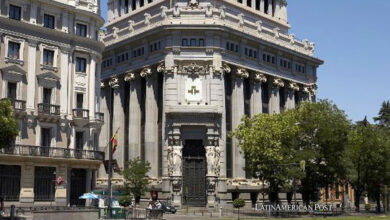When the press gets censored
Listen this article
LCensoring the media seems to be the new strategy of some governments

Attacks on journalists, cameramen, newspapers, media, among others, are part of the censorship of press freedom that is being experienced in some parts of the world. According to a report by the organization Reporters Without Borders (RSF), this year 63 journalists were murdered around the world, compared to 55 the previous year.
Leer en español: Cuando la prensa es silenciada
The hatred expressed by public figures and the attack on the media, damage their central task of "informing in a contextualized manner on the relevant issues for all citizens, by scheduling the central issues for development and democracy in public debate, act as "dog-guardian" of governments and other actors,” as mentioned on the official website of UNESCO.
Thus, as in the 21st century, some governments resort to this method so that nobody can criticize its government policies. However, it is there where organisms, societies and entities come together to ensure that this right is fulfilled. However, it is not a single issue of the first world, because in several Latin American countries it happens.
Maybe you're interested in reading: This is the controversial bill that would change journalism in Colombia
Nicaragua
The government of Daniel Ortega made a series of accusations against journalists in that country, calling them terrorists. After 8 months of crisis, according to Univisión and the Violeta Barrios Foundation, 420 attacks on press workers have been registered. Among this number, there is also the case of the journalist who was killed while broadcasting live one of the protests.
According to the Inter-American Commission on Human Rights, Nicaragua is the country with the largest number of journalists in detention. In addition, the Nicaraguan government decided to remove the 100% Noticias channel from the air, one of the few that was dedicated to reporting on the repressions of the State. On the other hand, several presenters were beaten with the sole purpose of being silent.
The Confidential, was the medium that was affected in recent days. As reported by Univisión, the building was taken over by police. The Confidential was one of the means that carried out investigations. Despite denouncing, the journalists were attacked. On the other hand, again, the channel 100% was threatened, and even tried to get it out of the air, to be replaced with the official government channel.
Complaint
The Inter-American Press Association (SIP) expressed itself in this regard and described it as "a serious violation of freedom of expression and of the press," as reported by RCN. On the other hand, several Mexican media, organizations, and journalists joined in demonstrating the rejection of Ortega's actions.
As reported by Distintas Latitudes, these organizations made statements at the Nicaraguan Embassy in Mexico and demanded that the Government of Nicaragua stop harassing journalists and defenders; to end the illegal occupation of the main means of communication and to guarantee full freedom of expression, of the press, of thought and of demonstration.
Venezuela
Since the Chavez regime came to power, the media has been constantly monitoring what they say about the government. However, this control by the State increased once Nicolás Maduro took power, since by November 2018, more than 115 media outlets had closed, despite the constant reminder that freedom of press exists in that country.
The SIP, pronounced itself against the fact and affirmed that "the closing of means of communication restricts the spaces of public debate on the performance of the Venezuelan authorities, which weakens the process of social comptroller".
#CierranLosMediosAlzamosLaVoz por los 41 impresos que desaparecieron de los quioscos de periódicos y por la gente que ya no puede leerlos. #2Nov pic.twitter.com/f0O1ApcPEB
— SNTP (@sntpvenezuela) 2 de noviembre de 2018
The last means to suffer the consequences of censorship in Venezuela, is the newspaper "El Nacional", which after 75 years of circulation, was forced to close its print edition. According to El País, when in 2014 Maduro took control of the paper monopoly for the press, exercising a more effective method of censorship, since he distributed paper to those media that supported his government.
Like the situation in Nicaragua, several of the journalists in this media have been threatened or attacked; the headquarters have been attacked and the owners and managers of the newspaper have several demands, the same media points out.
Read also: 8 ambitious bills in Latin America
What is happening in other countries?
In Guatemala, for example, a bill was proposed that would punish those who criticize politicians, including through the use of social networks. If this law were passed, the media and the independent press would be the most affected.
In Colombia, the journalist Juan Pablo Calvás, denounced that there was a case of censorship, when the president of RTVC Sistema de Medios Públicos, had intervened an interview with Iván Duque. On the other hand, the journalist and presenter Santiago Rivas was also affected because, after participating in a video criticizing the current situation of RTVC, both the presenter and the program under his charge (Los Puros Criollos), were suspended.
In view of this, RTVC stated that it would collaborate with the Attorney General's Office after the denunciations of these supposed acts of censorship, as stated by El Espectador.
LatinAmerican Post | Laura Viviana Guevara Muñoz
Translated from “Cuando la prensa es censurada”





